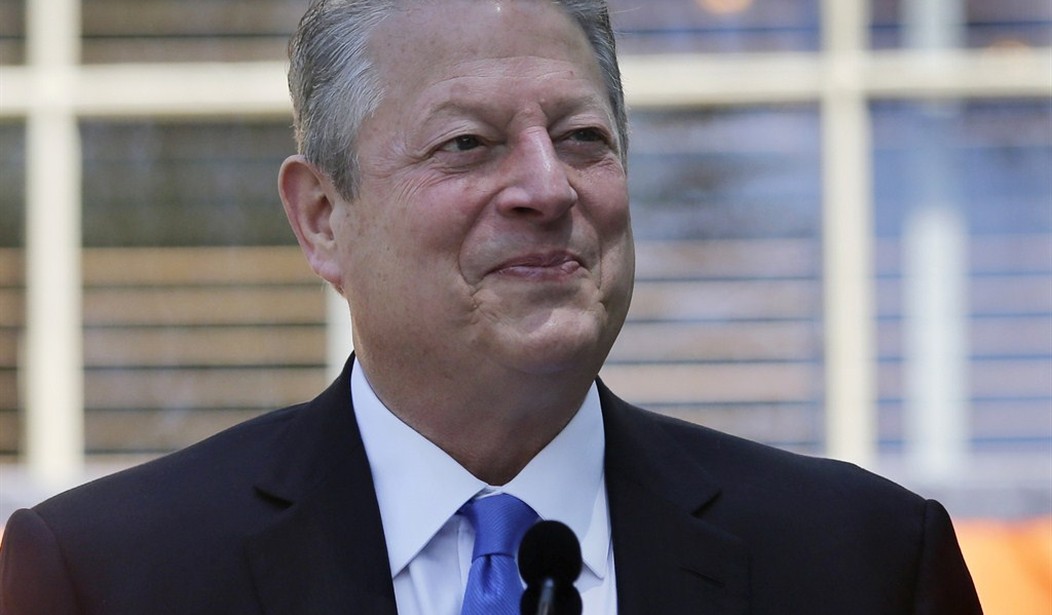Bruce Thornton’s “The Religion of Environmentalism” performs the unusual feat of starting at the roots of religious worldview and moving seamlessly up through science and economics to policy.
“While science does play a huge role in modern environmentalism, Thornton points out, “old cultural myths influence much of what many people believe about humanity’s relationship to nature..” They embrace “the Golden Age myth” underlying “our anxieties about the power of science and the dangers of its meddling with nature,” adding that its “attractive consolations help explain why certain strains of modern environmentalism, despite their patina of science, have echoed the motifs of this ancient myth.”
Citing Al Gore’s Earth in the Balance (1992), Thornton points out that for Gore
The cause of the loss of the old Golden Age harmony with nature is the modern Iron Age’s “technological hubris” and “technological alchemy,” which have driven an “increasingly aggressive encroachment into the natural world” and created the “froth and frenzy of industrial civilization.”
For Gore modern science is the culprit ....
Like deep ecology, Gore’s version of the old Golden Age myth characterizes much of modern environmentalism, which demonizes science and capitalism for rupturing a harmony between humans and nature that never existed. In reality, … the mode of existence often touted as the lost, pre-agricultural paradise of human harmony with nature … was, in the words of Thomas Hobbes, marked by “continual fear, and danger of violent death: and the life of man solitary, poor, nasty, brutish and short.”
One point that hovers around in the article without becoming explicit is that environmentalism’s underlying hostility to science stands in tension with its masquerade of scientific justification for many of its claims of catastrophe—catastrophic anthropogenic (manmade) global warming (CAGW) being the ultimate example.
Recommended
If ever there were an environmental “problem” that involved incredibly complex science, CAGW is it. Earth’s climate system may be the most complex natural system we’ve ever studied. It has thousands of feedback variables we can’t quantify, many of which we don’t even know the sign (+ or -) for. That is, we don’t know whether they enlarge or diminish initial warming of the atmosphere.
It’s no wonder computer climate models fail the test Nobel Prize-winning physicist Richard Feynman called “the key to science”: comparing predictions with observations. On average, they predict twice the warming observed over the relevant period. None predicted the complete absence of statistically significant global warming over the 18 years and 8 months from January 1997 through September 2015. And if their errors were random, they’d be as often below as above, but 95 percent predict more warming than observed, implying that the errors are driven by bias (accidental or intentional).
That, coupled with environmentalism’s fundamentally anti-science worldview, makes it ironic when people like Gore, President Barack Obama, Secretary of State John Kerry, Senator Bernie Sanders, and Hillary Clinton, echoing thousands of movement environmentalists, tell us “the science is settled” (But every good scientist is a skeptic.) and “97 percent of climate scientists agree” (They don’t, but even if they did, consensus is a political value, not a scientific one.) that our use of fossil fuels is driving global warming that may, as Sanders put it, make the earth “uninhabitable” for our children or grandchildren, and that those who disagree are “science deniers.”
The real “science deniers” are those who say such things.
The irony would be hilarious except that the cure they prescribe for CAGW is worse than the disease. Thornton concludes:
As Danish environmentalist Bjørn Lomborg points out, the World Health Organization estimates 250,000 people will die from climate change by 2050; this year, 4.3 million will die from indoor air pollution, mostly due to poor people using dung and wood for cooking. Economic development that makes electricity affordable for these people could save millions of lives.
Policies that impact human well-being should be based on reliable science, not consolatory myths. Even if global warming is true, the attempts to reduce carbon dioxide emissions by attacking carbon-based energy will not in the long run do much for slowing global emissions, even as they damage the world’s economies and retard the economic development that can improve the material well-being of billions of people. Those people should not suffer because comfortable, well-fed Westerners indulge their mythic longings for a lost paradise that never existed.
Right. Poverty is a far greater risk than climate change, the point of a petition, Forget ‘Climate Change’, Energy Empowers the Poor. People who are even moderately well off can thrive in any climate, from the Arctic Circle to the Sahara Desert or the Amazon rainforest. The poor can’t thrive in the best tropical paradise.
Of course, movement environmentalists tend not to care much about whether people thrive, since they view us basically as consumers and polluters, not producers and stewards. But prosperity benefits both people and environment, as Jack Hollander, professor emeritus of energy and resources at UC Berkeley, argues in The Real Environmental Crisis: Why Poverty, Not Affluence, Is the Environment's Number One Enemy.
A clean, healthful, beautiful environment is a costly good. Wealthier people afford more costly goods than poorer people.
With technology to prevent emission of real pollutants like carbon particulates and sulfur oxides, but not to restrict emission of life-giving carbon dioxide, fossil fuels can be used safely. And since they’re the best source of the abundant, reliable, affordable energy essential to overcoming poverty, they should be celebrated, not demonized.
























Join the conversation as a VIP Member